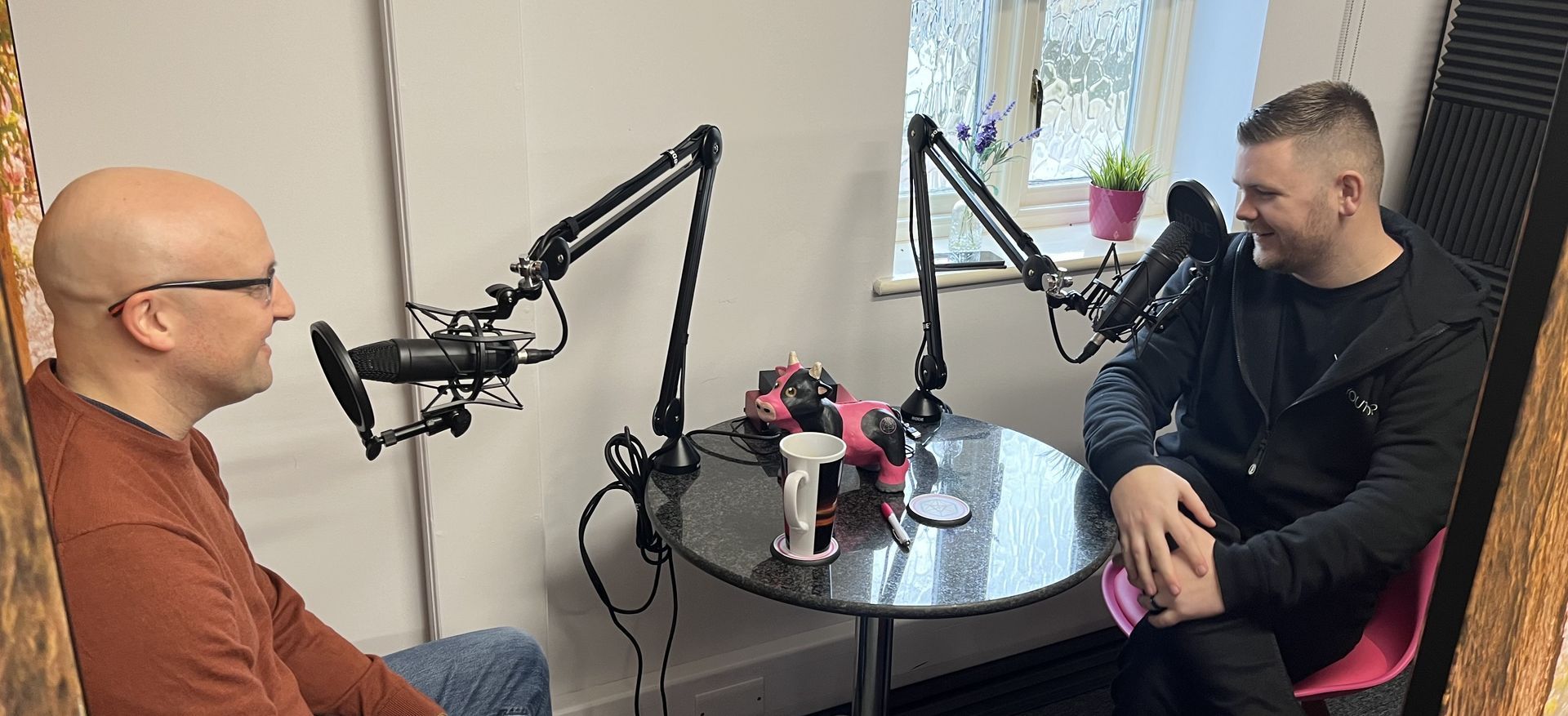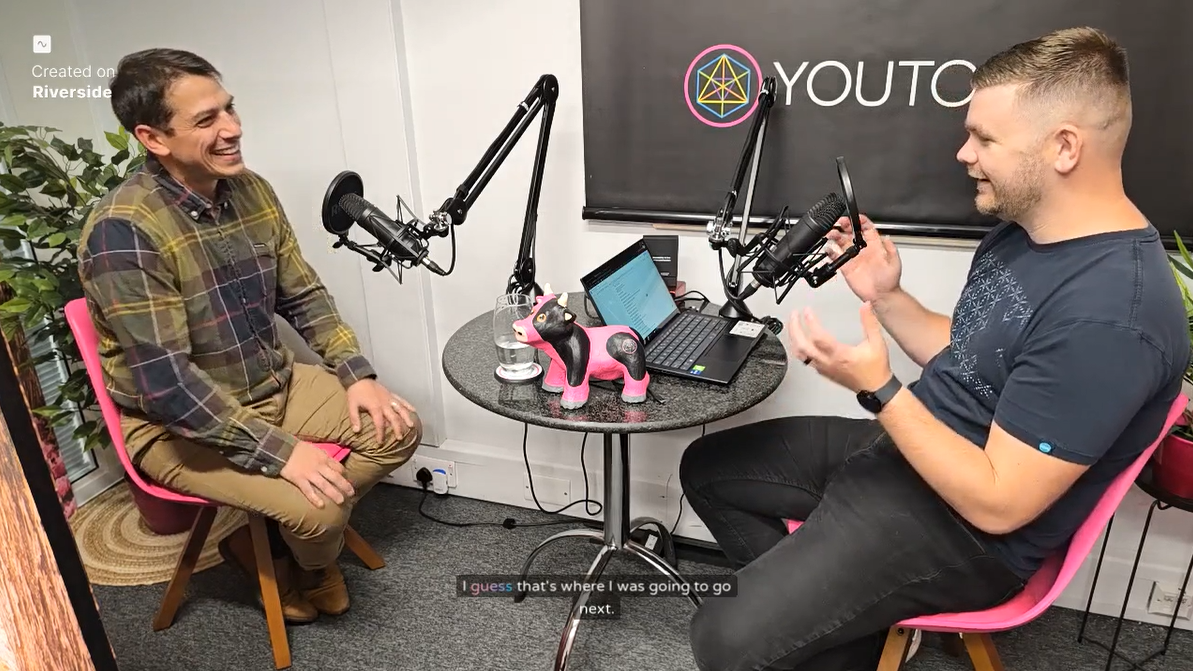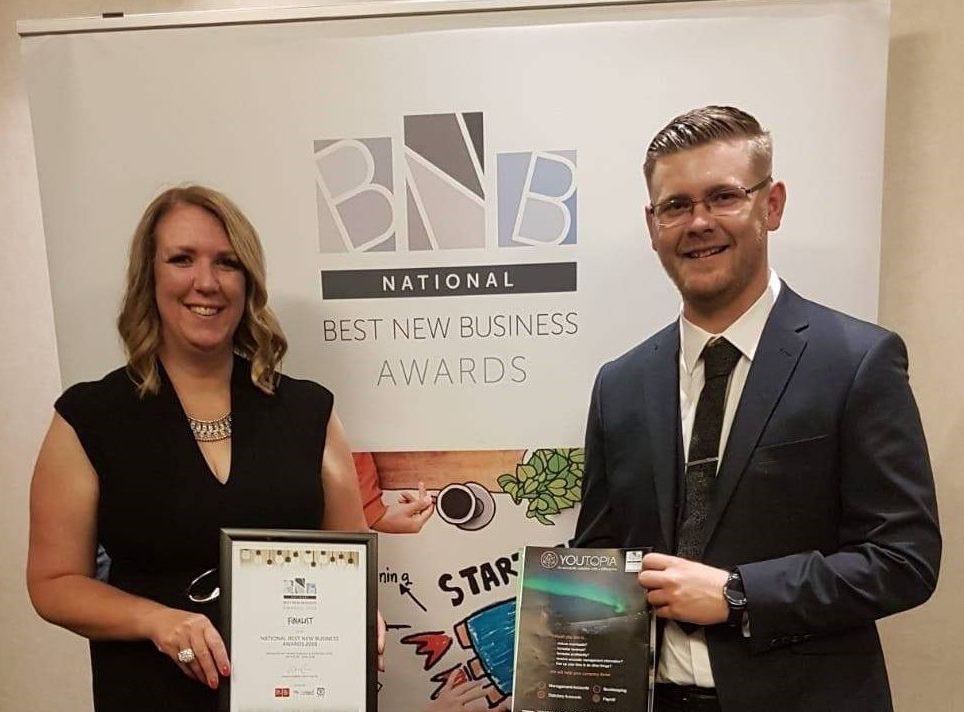7 Powerful Steps to Success for Small Business Owners
Are you a small business owner looking for success and growth? Do you want to know how to exit your business with a great return?

If so, you won't want to miss this blog post! I'm here with Debbie Lewis, founder, business advisor, regional ecosystem manager, and really a small business cheerleader. Debbie's story is one of passion and resilience, as she leveraged her own experiences to escape poverty and become a successful entrepreneur. Debbie will share her advice to other small business owners, and I will outline how Debbie Lewis used her system, Arcana Salon Expansion, to get success, growth and an exit. Don't miss out on hearing Debbie's story and learning 7 powerful steps to success for small business owners!
About Debbie Lewis
Debbie Lewis is an inspirational business founder, advisor, regional ecosystem manager, and small business cheerleader. After completing her medical biology degree and working in salons since the age of 14, Debbie knew she wanted to escape poverty and be her own boss. She took a chance and opened her first salon at 24, armed with a £5 note and a business loan. Through hard work and dedication, she managed to build a successful chain of hair and beauty salons, employing over 100 people in 17 years. Debbie found her success through the people around her - her family, friends, accountant, and bank manager - who gave her the necessary advice and support to make informed decisions and build a successful business. Her story is one of resilience and
Why is it important for small business owners to receive advice?
As a small business owner, it is important to receive advice in order to make sure that your business is running as efficiently and effectively as possible. Receiving advice from experienced professionals can help you make better decisions for your business, identify potential problems, and create strategies for long-term success. Not only will this help you to stay on top of the latest trends and innovations, but it can also help you to save time and money. Furthermore, receiving advice from experienced professionals can help small business owners to develop a better understanding of their industry and the challenges that they may face. This can help them to prepare for potential risks and take advantage of new opportunities. With the help of experienced advisors, small business owners can also ensure that their business is compliant with all relevant regulations and laws. Ultimately, seeking advice can help small business owners to make informed decisions and have confidence in their business’s future.
Here are the steps you need to follow:
1. Identify the need and develop a business plan.
2. Reach out to potential partners and secure the necessary funding.
3. Develop a brand strategy and reputation.
4. Surround yourself with the right people and resources to help you succeed.
5. Research, plan and be strategic when expanding.
6. Monitor and adjust your business decisions as needed.
7. Follow an exit plan to ensure maximum return on investment.
The first step in the transcript is when Debbie Lewis is asked to describe herself. She prefaces her response by saying it depends on the day and what hat she's wearing. She then explains how she has always been passionate about business, even as a teenager. She was drawn to the idea of getting rich quick and decided to buy a salon after finishing university. She explains her motivation to start her own business was to escape the poverty she grew up in and she felt the only way to do that was to be her own boss. She was able to secure a business loan and opened up a bricks and mortar store with three staff members. Despite feeling terror, she fell on her feet and managed to make it work. She found support in her family and friends, who encouraged her to keep going and provided emotional support. Her father was particularly influential, being an excellent listener and helping her to make decisions by playing things back to her. Debbie then explains how she built her brand without a brand strategy, first creating a reputation and then building her brand up to scale and exit. She explains the importance of having the right people around her and how her accountant was particularly influential in helping her to make the right decisions. Finally, she explains how she expanded her business from one to two salons and learnt from her mistakes.
Debbie then goes on to explain the importance of perseverance and hard work. She believes that if you are passionate about something and never give up, you can achieve great things. Her motto is to never take no for an answer and to always strive for success. She advises young entrepreneurs to stay humble, learn from their mistakes and never give up. Debbie is a shining example of how you can build a successful business from nothing. She faced many challenges along the way and could have easily given up, but she persevered and in the end, she achieved her dreams. Today, Debbie is a successful businesswoman who is inspiring the next generation of entrepreneurs. She is an inspiration to us all and her story is proof that anyone can make their dreams come true.
1. Identify the need and develop a business plan.
Step 2 in the transcript is to identify the need and develop a business plan. The first step is to identify the need and understand the purpose behind starting a business. This can be done by researching the target market, understanding the competition, and looking into the financials of the industry. Once the need is identified, it is important to create a business plan that outlines the goals, strategies, and tactics that will be implemented to achieve success. The business plan should include an executive summary, a description of the business and its products or services, a financial plan, a marketing plan, and a management plan. Additionally, it should include the details of the legal structure of the company, the people involved, and the timeline for implementation. Finally, the business plan should be reviewed and revised as needed.
The third step in the process is to choose a legal structure for the business. Choosing the right legal structure is important as it will determine the tax implications, the types of liabilities, and the regulations that the business must adhere to. The most common legal structures for small businesses include sole proprietorships, partnerships, limited liability companies (LLCs), and corporations. Each of these structures has its own advantages and disadvantages, so it is important to research and understand the pros and cons of each option before making a decision. Finally, the fourth step is to obtain the necessary licenses and permits. Depending on the type of business and its location, different licenses and permits may be needed in order to legally operate. This can include a business license, a health permit, a fire safety permit, and a license to sell specific products or services. Additionally, businesses may need to comply with certain regulations such as zoning rules, health and safety regulations, and environmental regulations. It is important to research the regulations that apply to the business and obtain the necessary licenses and permits before opening.
3. Reach out to potential partners and secure the necessary funding.
Reaching out to potential partners and securing the necessary funding is a critical step to any business venture. The first step is to identify the type of funding that is needed, such as grants, loans, venture capital, or angel investments. Once the funding has been identified, research potential partners and investors that offer that type of funding. Companies, organizations, and individuals who offer the funding should be contacted to discuss the project and the funding that is needed. It is important to have a detailed and well-crafted business plan that outlines the project and the need for funding. Once potential partners have been identified, it is important to reach out and make contact. Contact should include an introduction of the project, a detailed explanation of the need for funding, and a review of the business plan. Potential partners and investors should be given the opportunity to ask questions and discuss the project. Once a potential partner or investor has expressed interest, negotiations should take place to discuss the terms of the funding. This should include the amount of money needed, the timeframe for repayment, and any other conditions that may be associated with the funding. It is important to be prepared to negotiate and to be flexible in order to secure the necessary funding.
Once the necessary funding has been secured, it is important to keep potential partners and investors informed of the progress of the project. Regular updates should be provided to keep them informed of the progress and to show that their investment is being used as intended. Keeping potential partners and investors informed of the progress of the project helps to build trust and demonstrates that the project is being taken seriously. It is also important to develop a long-term relationship with potential partners and investors. This can be done by staying in touch and providing regular updates. Additionally, it is important to thank them for their investment and to be open to feedback on how the project is progressing. Developing a long-term relationship with potential partners and investors will help ensure that the necessary funding is secured for future projects.
4. Develop a brand strategy and reputation.
Developing a brand strategy and reputation is an important step to ensure success for any business. Debbie Lewis, founder and business advisor, was able to build her successful business by relying on the people around her for advice and guidance. She credits her parents and accountant as the most influential people in her journey. From her early beginnings, Debbie chose a unique name, Arkana, which grabbed attention and made her stand out in her industry. She also worked closely with a graphic designer and printer to develop physical branding that was memorable and attractive. Reputationally, Debbie was able to build a strong name for herself and her business through awards and speaking engagements. She was also able to establish her business in the community by engaging with customers and understanding their needs. This allowed her to expand her business to multiple locations, though she admits it was largely ego-driven. However, Debbie was lucky to receive great advice from her accountant which saved her from further financial danger. Ultimately, Debbie was able to create a successful brand and reputation through the support of others, and by listening to their advice.
Debbie’s brand strategy also included a strong presence on social media, which she used to her advantage. She worked with a team to create content that was interesting and engaging, and that showcased her business’s unique offerings. This strategy allowed Debbie to connect with customers and build up a loyal following. Additionally, Debbie was able to build her business’s reputation through consistent advertising and public relations efforts. She worked with a PR agency to ensure her business was featured in the right publications and websites, which increased her profile and reach. Overall, Debbie was able to create a successful brand and reputation for her business by relying on the people around her for advice and guidance, and by investing in her brand strategy and reputation. By taking the time to understand her customer needs, developing a unique name, and engaging with customers on social media, she was able to create a successful brand and reputation for her business.
5. Surround yourself with the right people and resources to help you succeed.
Surrounding yourself with the right people and resources to help you succeed is an essential part of running a successful business. Debbie Lewis, founder, business advisor, regional ecosystem manager and small business cheerleader, has experienced this first hand. Throughout her journey in business, Debbie has had over 100 people who have been part of her journey, whether they were apprentices, part time staff or full time. She has also appreciated the support of her family, her accountant, her bank manager and her business coach. Each of these people have given her different advice and a different perspective during different stages of her business’ growth. From this, Debbie has learnt the importance of surrounding yourself with the right people and resources to help you succeed. Having a mentor, an accountant and a bank manager to guide you in the right direction and give you tough love when necessary, is essential for the success of any business. Additionally, having people who understand the industry you are in, and can offer you insight and advice on the best decisions to make, is key. Having these people in your corner can help you make the right decisions, steer your business in the right direction and ultimately help you succeed.
Additionally, having access to the right resources can also be a great help. Whether it be research and industry insights, or the right technology and software, having the right resources can make a huge difference to your business’ success. Technology can help to streamline processes, increase efficiency and reduce costs. Software can help with data management and analysis, making it easier to make decisions. Research and industry insights can help you understand the current trends and what needs to be done to stay competitive. Overall, having the right people and resources in place to help you succeed is essential for the success of any business. Whether it be a mentor, an accountant, a bank manager, or the right technology and software, having the right people and resources in your corner can help you make the right decisions and steer your business in the right direction.
6. Research, plan and be strategic when expanding.
When expanding, research and planning is key. It is important to ensure that the expansion is strategic and well-thought-out. Debbie Lewis, founder, business advisor and regional ecosystem manager, speaks of her own experience expanding her business. When she first began her business, she had one salon with three staff. She was motivated to have a different life than the poverty she was brought up in. As her business grew, she made the mistake of expanding too quickly without doing a brand strategy day or researching her next move. She had two guys in her network who saved her from making mistakes, but she still had to learn the hard way. She learned that having the right people around you, like an accountant, bank manager and business coach, is vital for success. She also learned to be more strategic with her expanding, doing research and planning out her moves. With this knowledge, she was able to eventually close her business at the right time and make the most amount of money.
Debbie Lewis' story serves as a great example of the importance of research and planning when expanding. Through her experience, she found that it is essential to have the right people around you that can provide you with the necessary guidance and support. It is also important to be strategic with your expanding, taking the time to research and plan out your moves. This can help you avoid costly mistakes, allowing you to make the most of your expansion. Another key factor to consider when expanding is to be aware of the resources you have available to you. This can be anything from capital to staff and technology. Having the right resources can make the difference between success and failure. It is important to take the time to research the resources that are available to you and determine what will best serve your business needs. With the right resources and a well-thought-out plan, you can ensure that your expansion is a success.
7. Monitor and adjust your business decisions as needed.
Monitoring and adjusting business decisions as needed is an important step in any business venture. This requires having an understanding of the current situation, being able to identify potential risks, and taking proactive steps to mitigate any threats. To do this, Debbie Lewis recommends having a trusted advisor or consultant, a bank manager, and an accountant who can help provide guidance and advice. Additionally, it is important to stay up to date on changes in the industry, the market, and any other external factors that may affect the business. It is also important to be open to feedback from customers, employees, and other stakeholders. The feedback should be used to inform decision-making and allow for adjustments as needed. Finally, it is essential to have a good understanding of finances, including cash flow, income, and expenses. This knowledge will help make it easier to identify any risks and make adjustments quickly should the need arise.
It is also important to stay flexible when making adjustments. This means being able to identify and prioritize areas of the business that need to be changed, and then taking action to make those changes. It is also important to be aware of potential opportunities that can help the business grow, such as new markets, new products and services, or new partnerships. Finally, it is essential to be able to measure the success of any adjustments made and make further changes as needed. Monitoring and adjusting business decisions as needed is a key part of the entrepreneurial journey. It is important to be proactive and stay informed about the current situation and any potential risks that may arise. Additionally, it is important to be open to feedback and be willing to make changes to ensure the success of the business. With the right tools, knowledge, and guidance, any business can be successful.
Debbie Lewis’ inspiring story of resilience, hard work, and dedication is a great example of how small business owners can achieve success, growth, and an exit. Her 7 powerful steps to success for small business owners are important for any small business looking to succeed. These steps include identifying the need and developing a business plan, reaching out to potential partners and securing the necessary funding, developing a brand strategy and reputation, surrounding yourself with the right people and resources to help you succeed, researching, planning and being strategic when expanding, monitoring and adjusting business decisions as needed, and following an exit plan to ensure maximum return on investment. No matter where you are in your journey, remember that you can achieve success, growth and an exit for your small business with the right advice, support, and dedication.
I’d love to hear how you apply Arcana Salon Expansion to get success, growth, exit.. Leave me a comment on how it went for you or drop any questions you want me to answer!









